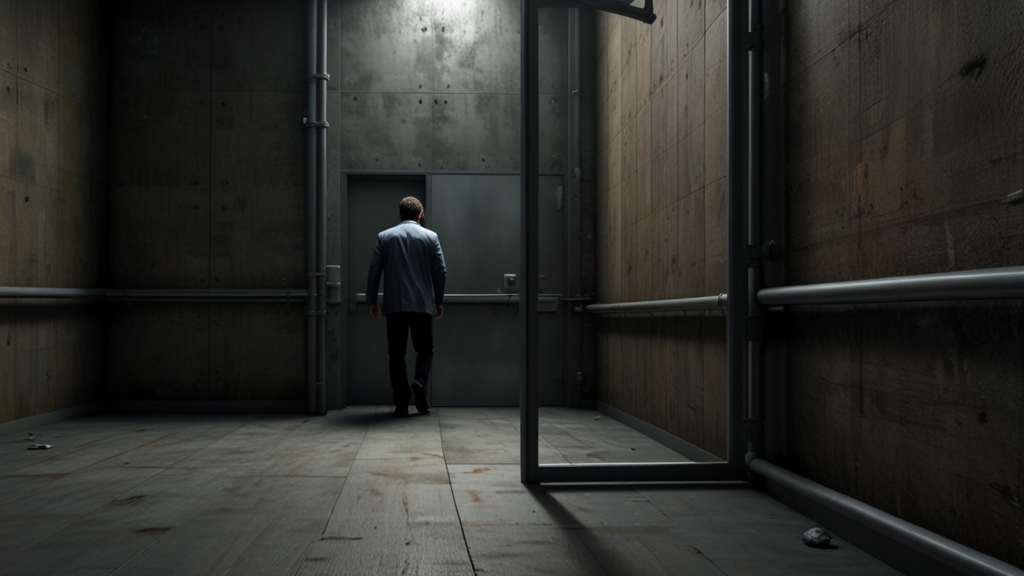Trapped in a Logical Dilemma: Can You Find the Exit?
In the labyrinthine networks of the human mind, logical dilemmas act as intricate puzzles, challenging us to think beyond straightforward reasoning and delve into the realms of paradoxes and critical thinking. Whether in philosophy, mathematics, or everyday decision-making, these dilemmas can sometimes leave us feeling trapped, desperately seeking an exit that might not be immediately apparent. But can you find it?
What Is a Logical Dilemma?
A logical dilemma is a situation in which a person must choose between two or more options, none of which are desirable or all of which lead to a paradox. In essence, it's a problem with no straightforward solution, often used to test the principles of logic, ethics, or decision-making processes. One classic example is the famous "Sorites Paradox" (also known as the "Paradox of the Heap"), where one must determine at what point a heap of sand stops being a heap when grains are individually removed.
The Anatomy of Paradox
Paradoxes lie at the heart of many logical dilemmas. A paradox is a statement or a concept that, despite reasonable premises, leads to a conclusion that seems logically unacceptable. Consider the "Liar Paradox," where a sentence states, "This statement is false." If the statement is true, then it must be false, but if it is false, then it must be true. Such paradoxes can send us in endless loops of reasoning, searching for clarity that may never come.
Real-World Examples
The Trolley Problem
Arguably one of the most famous modern logical dilemmas is the “Trolley Problem.” Imagine a runaway tram heading towards five people who are tied up on the tracks. You stand next to a lever that can switch the tram onto another track, where one person is tied up. Do you pull the lever and sacrifice one to save five? This dilemma explores the conflict between utilitarian ethics, which focuses on the greatest good for the greatest number, and deontological ethics, which focuses on the morality of actions themselves.
The Prisoner's Dilemma
Another well-known dilemma is the "Prisoner's Dilemma," in which two individuals are arrested and interrogated separately. They can either betray each other or remain silent. If both betray each other, they both receive a moderate sentence. If one betrays while the other remains silent, the betrayer goes free while the silent prisoner receives a harsh sentence. If both remain silent, they receive minimal sentences. The dilemma highlights the complexities of trust, cooperation, and selfishness.
Finding the Exit
How does one navigate such mazes of thought? The key lies in understanding the underlying principles and looking for creative solutions. Here are some strategies that might help:
Reframe the Problem
Often, the way a dilemma is framed can limit our perception of possible solutions. Try to reframe the problem or consider it from a different perspective. For instance, in the Trolley Problem, rather than focusing solely on the lever, one could consider other ways to stop the tram.
Seek Out New Information
Additional information can sometimes reveal hidden solutions or make a choice clearer. In the context of the "Prisoner's Dilemma," knowing the character and past behavior of the other prisoner might influence your decision.
Accept Imperfection
Not all dilemmas have a perfect solution. Accepting that a choice may have negative consequences is sometimes necessary. Consider how different values prioritize different outcomes: does truth matter more than harm reduction, or vice versa?
"The essence of wisdom is to know what to overlook." - William James
Conclusion
Logical dilemmas challenge our cognitive faculties, pushing us to think critically, ethically, and creatively. While the exit may not always be immediately visible, the process of engaging with these dilemmas sharpens our minds and illuminates the complexities of human reasoning. Reframe the problem, seek new information, and accept imperfection—these strategies will guide you toward finding the exit, or at the very least, provide valuable insights along the way.
"In the middle of difficulty lies opportunity." - Albert Einstein
The next time you find yourself trapped in a logical dilemma, remember that the quest for an exit is as enlightening as the solution itself. Can you find the exit? Only time, and thoughtful consideration, will tell.












